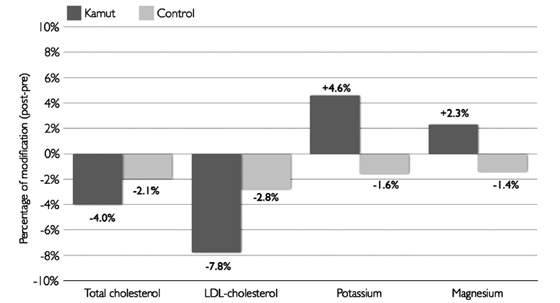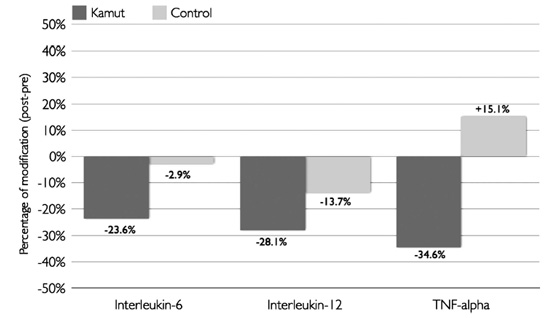Nowadays, as of the date of writing this article in Jan 2016, pretty much everyone agrees that wheat can be a problem for celiac patients that is. Thankfully, (and as usual with mainstream medicine, arriving late) awareness and acceptance of celiac is finally mainstream.
The acceptance of non-celiac gluten sensitivity has been increasing as well, however be it at a slower pace. If history is any indication I expect that the mainstream medical industry will catch up later, as they have with many other conditions, such as Celiac.
Until that date, there will be skeptics who refuse to accept the possibility that wheat can be harmful for normal (non-celiac) people as well.
Here are a couple of studies in healthy people.
The first was published in early 2013. This study compared Kamut (an older variety of wheat) against modern wheat. It was a randomized controlled cross-over trial with 22 healthy participants (17).
The participants consumed either Kamut or modern wheat, for 8 weeks each.
This is what happened to their cholesterol levels and blood mineral content:

As you can see, Kamut wheat caused a reduction in both Total and LDL cholesterol compared to modern wheat. It also increased blood concentrations of potassium and magnesium, while these minerals decreased with the modern wheat.
Kamut also caused a mild reduction in fasting blood sugars (3 mg/dL), but that isn’t shown on the graph.
Here is what happened to inflammatory markers. Excess inflammation in the body is linked to almost every modern disease, including heart disease, diabetes, metabolic syndrome, stroke, Alzheimer’s, arthritis and many more.

As you can see, Kamut led to a major decrease in some important inflammatory markers (IL-6, IL-12 and TNF-α), while modern wheat did not. In the case of TNF-α, modern wheat caused an increase, although it was not statistically significant.
What this study implies is that Kamut wheat is, at the very least, much “less bad” than modern wheat.
There was also another study that tested an old Italian variety of wheat and noticed significant improvement in blood cholesterol and inflammatory markers compared to modern wheat (18).







